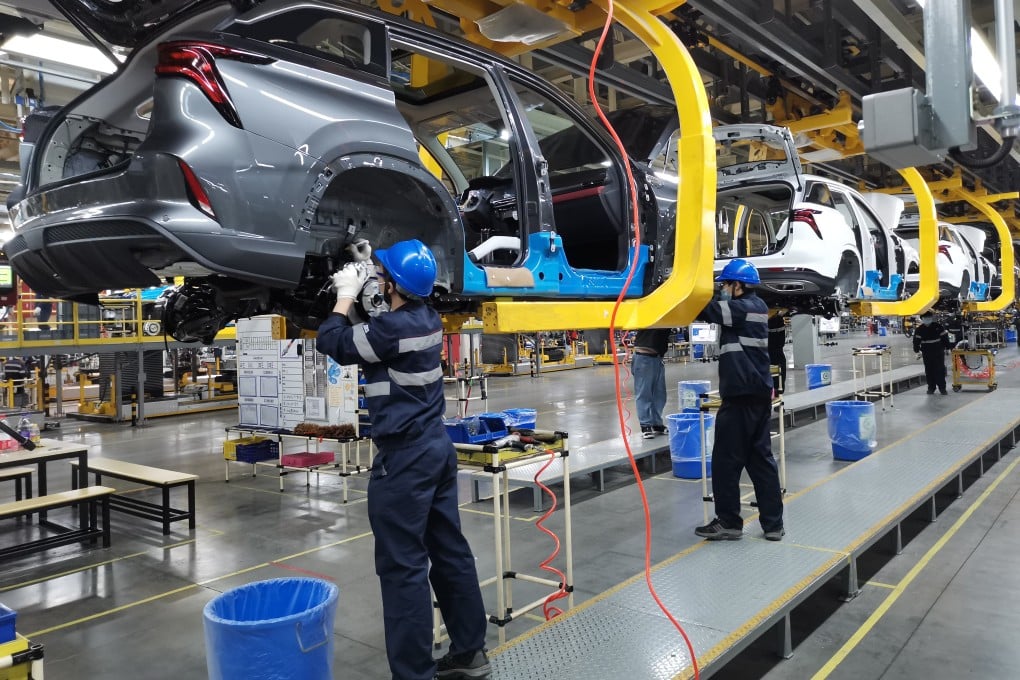Chip shortage leaves Tesla and other electric car buyers in China waiting months for new vehicles
- Tesla’s Shanghai-made Model 3s and Model Ys may not be delivered until the end of the quarter, while other EVs have wait times of at least a month
- The global chip shortage continues to disrupt the auto industry after forcing Chinese carmakers to cut production by 1 million in 2021

The ongoing global chip shortage has left car buyers in China waiting several months for newly purchased vehicles to arrive, as assemblers and component manufacturers struggle to keep up with demand.
The electric vehicles (EVs) market has been especially hard-hit owing to its need for more semiconductors than traditional carmakers. Premium cars that need more chips for driver assistance and other electronic systems remain in high demand despite a slowdown in production.
Two sales managers at Tesla, the global leader in EV sales, said buyers ordering Shanghai-made Model 3 and Model Y vehicles will not see their new cars until the end of the first quarter.
“Insufficient supply of chips is a major stumbling block to sales growth ahead of the Lunar New Year,” said Tian Maowei, a manager with Yiyou Auto Service in Shanghai. “Some buyers have lodged complaints about a long delay of the deliveries.”
Supply problems continue to ravage the automotive industry after a rough 2021. The chip shortage forced Chinese carmakers to slash production by more than 1 million units last year, according to AutoForecast Solutions, which compiles production estimates for the industry. Globally, the chip crunch is estimated to have resulted in 11 million fewer cars being produced, according to the company.
Analysts expect the chip shortage to force smaller assemblers to suspend production this year.
In mainland China, the world’s largest automotive market, global foundries can only produce enough semiconductors, microcontrollers and high-end chips with artificial intelligence (AI) processors for about 4 million new energy vehicles (NEVs), according to the China Passenger Car Association (CPCA). That leaves a shortfall of 1 million vehicles based on the guild’s forecast for demand this year of NEVs, a term used in China to refer to electric and hybrid vehicles.
